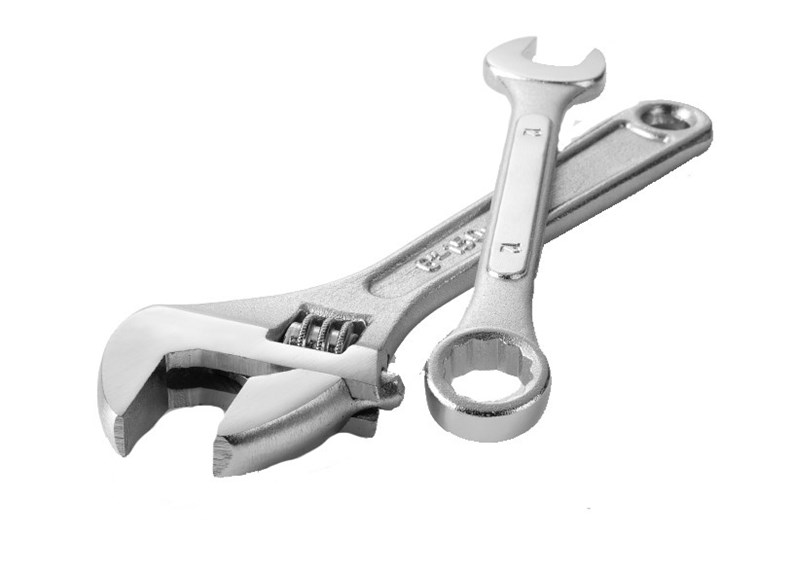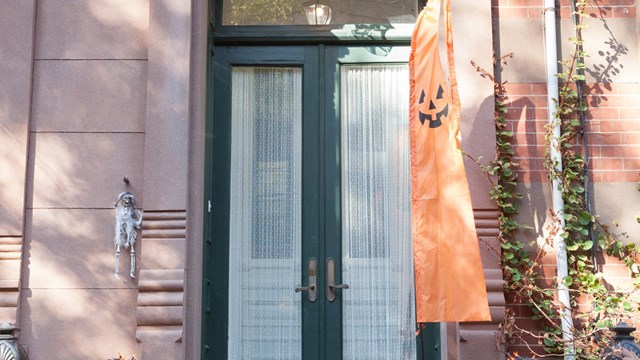The thought of it sends shivers up your spine—the shrill north winds, the snow-covered roads, the traffic jams on the New Jersey Turnpike. Yes, winter is coming. And as the seasons change once again, so too do the demands on housing communities—and their maintenance staff members.
As residents increasingly take up shelter indoors, maintenance teams gear up to take on some of the harshest elements outside—snow, ice, wind, sub-freezing temperatures, and their effects on association roofs, windows, gutters, plumbing, heating and roadways.
If your community hasn't already started the winterizing routine, there is still time. According to Andy Amorosi, president of Falcon Engineering in Somerville, many of his company's customers have already completed a winter check, December 1st is a good, final deadline—before the snow gets heavy and the ground has frozen solid.
Shoveling snow may be a good upper body workout, but one of the reasons for living in a community association is to take advantage of its "maintenance-free" environment. So, with multiple residents, vehicles, schedules and buildings to worry about, it's all the more important for a community to keep up on both maintenance checks, and new technology that can make winter run as smooth as silk—keeping the elements out, the residents safe, and the costs at bay.
Have a Plan
Even the most well-managed association needs to take winter precautions, especially in the colder climates of the northeast, according to Richard Thompson, a real estate broker, property manager, and HOA consultant with Regenesis.net, a website dedicated to homeowner and community associations. Maintenance staff and/or the property manager should do a walk-through and check the common areas; the building components, such as roofs, gutters, windows, siding, trim, decks, garages, HVAC units, elevators; the on-site surfaces, such as paving, concrete, fencing, lighting; all landscaping and equipment, such as timers, controllers, and sprinkler heads; and recreational components, such as pools, spas, saunas, playgrounds, tennis courts, golf courses, exercise rooms, and clubhouse.
While each area has its own special concerns, checking the building components and safeguarding your outdoor landscape are vital. A good roof is essential; if you suspect any leaks or problems have an inspection done by a professional. However, you can scrutinize your buildings to make sure nothing on the roof is loose, broken, rusted or in need of repair. The gutters and the downspouts should be checked to make sure they're not clogged with branches, leaves and debris. Is the siding and trim holding up? Are there any nails that need replacing or surfaces that require painting, Thompson notes. Do areas around windows need repainting or caulking? Decks should be checked for dryrot and drainage or moisture issues. Damaged wood should be replaced and check joists and fencing for any problems.
Next, survey the grounds. Check the common area lighting for broken, cracked or rusting fixtures. Check the asphalt and sidewalks for broken pavement in need of repair. Moss and algae growth can also be slip or trip hazards that should be remedied, he says. Look for evidence of ponding along building foundations and walkways. In cold weather, this can lead to major problems. Clean out ground and storm drains to improve drainage, he adds.
Water Gaps
Water is a major maintenance issue, according to Peter Grech, president of the New York Superintendents Technical Association and an independent building operations specialist and consultant. The maintenance staff or super should be sure to check the "spigots at any location where pipes can freeze. You need to shut down and drain the water." It is a simple tip, but it can save a community a real mess and expense in replacing broken pipes and melting frozen puddles. New technology has brought frost-proof spigot systems to market, which all but eliminates the need to even think about it.
Amorosi suggests that sprinklers be turned off, exposed water lines be covered and that water be blown out of pools and pool houses. Water pipes that travel through non-insulated regions are subject to freezing. Often all it takes is wrapping exposed pipes with plumbing tape to warm the pipes and keep the water flow uninhibited. It might seem obvious, yet late, warm days can lull us into a lapse of reality—thinking that winter appears to be further off than it really is. Most well-managed communities have regularly scheduled maintenance dates throughout the year, especially during seasonal changes.
While snow and ice can't be prevented, they can be managed quickly and efficiently. "You need to keep the snow from freezing," says Grech, "and use an environmentally-friendly product to melt ice—not rock salt. It is corrosive, and can cause damage to roads and cars."
But when extra help is needed, there are a variety of ice melting pellet products that will do the job without damaging concrete, leaving residual stains or ruining carpeting when tracked inside halls and homes.
Keeping paths and roadways clear is also important for mobility and safety, but snow and ice can also wreak havoc from above, says Amorosi. "Gutters should be cleaned so that water can flow freely through them." Leaves, twigs and other fall debris can clog gutters and prevent drainage, which can lead to ice build-up. And even when gutters are clear, Nor'easters with dipping temperatures can often leave heavy, hardened snow and ice sitting in gutters for days or longer.
Some communities have installed electric coil systems in their gutters and under pavement to prevent frozen accumulations (Editor's Note: see The New Jersey Cooperator's October 2004 edition for more on thermal snow-melting systems), although, according to Grech, this is most commonly available, not to mention practical, on buildings that house more than six units. For larger dwellings, keeping gutters free and clear and removing snow as soon as possible are the best ways to prevent problems.
Landscaping Preparations
Plants, trees and shrubs also need to be battened down for the winter, Thompson says. Winterize your irrigation systems; that means draining out the water completely. Winter fertilize your shrubs and lawns. Lawn moss occurs in areas where poor drainage, shade and heavily compacted soil are prevalent. To counteract moss, prune dense trees, aerate lawns, improve drainage in swampy areas and, apply a moss control product. By mid-December, schedule to have the gutters cleaned of leaves and debris. Check on the health of your trees. Have a landscape contractor or tree care service inspect trees for dead or dying limbs that may come down in inclement weather.
Wind Chills
While major snow may still seem a little way off, cool temperatures have likely tested your association's heating systems already. Most professionals agree that a cleaning and tune-up of heating systems, boilers and furnaces is well worth the investment before the system gets a full-scale trial during periods of freezing temperatures. "Normally, boilers should be overhauled in late summer," Grech adds, also noting that preventative maintenance of heating systems requires a 'well-tuned ear.' An experienced superintendent "knows the sound of the boiler—when it's working well and when it's not," says Grech. "When something sounds strange, take a look."
Not only will proper maintenance beforehand prevent potential malfunctions (and angry phone calls) when heat is needed most, but clean and properly operating systems keep energy flow more efficient from a cost standpoint.
According to Frank Dinaro, vice president of Commercial Combustion, a New York-based boiler/burner service company, "Boiler tubes need to be brushed out, water treatments applied, and heating time panels adjusted" in preparation for sub-zero weather. All of these measures insure that boilers are operating in a clear and temperate environment. It keeps boilers from laboring too hard or at too high a temperature, which increases costs and adds unnecessary wear and tear.
Plus, says Dinaro, "The super needs to go into [the boiler room] and oversee it regularly. " There are daily gauge and fuel level checks, weekly belt, pump and fuel-level checks and general cleaning tasks to be tended to. For communities without an on-site superintendent, these are concerns for the maintenance contractor.
For buildings with bulkhead doors that lead to the roof, Grech recommends that maintenance staff "make sure air doesn't leak through. Weather-stripping or spray foam goes a long way." And once again, don't forget that which is above. Missing shingles and nails mean spaces for air and water to seep into. Strong, well-maintained roofs will hold up to both the weight of snow and the force of wind.
"One of the things that make a difference is having windows that prevent air from entering through—energy efficient windows," says Gerri Kruszewski of Renewal by Andersen in Cranford. Newer windows, with the Energy Star rating provide extra insulation and protection from leaks.
On older buildings, even the smallest incidentals, like adding weather-stripping around windows or repairing a poorly closing door can mean increased comfort and decreased energy costs. Something as simple as changing a dirty filter or replacing worn or missing weather-stripping around older windows and doors can help to keep the heat in and the cold out.
A Silent Danger
Although tightly-sealed dwellings seem to be the goal for winter warmth and safety, there is one concern that comes with burning heating fuel in enclosed spaces, and that is carbon monoxide. When windows and doors are sealed tightly, poorly functioning or dirty furnaces and water heaters can cause hazardous gases to accumulate, with no place to escape. Most maintenance contractors can check systems easily with a monitor to assure safe operations—but again; keeping cleaning systems clean and up to date may be one of the best defenses to any such problems.
While we may not be able to control the temperatures, the precipitation, or the cost of fuel, with a few minor maintenance checks, the condos and co-ops in The Garden State can continue to be the cozy, comfortable places we call home—whatever the weather.
Chrysa M. Smith is a freelance writer and former condo owner now residing in Bucks County, Pennsylvania.







Leave a Comment